Diabetes is a chronic metabolic disorder characterized by high blood sugar levels either due to inadequate insulin production (Type 1 diabetes) or the body’s ineffective use of insulin (Type 2 diabetes). While managing blood sugar levels is the primary concern for individuals with diabetes, the condition can also have far-reaching effects on various aspects of health.
Jinkushal Cardiac Care & Superspeciality hospital
Diabetes Consequences
- February 21, 2024
- Posted by: Jinkushal Cardiac Care Hospital
- Category: Uncategorized
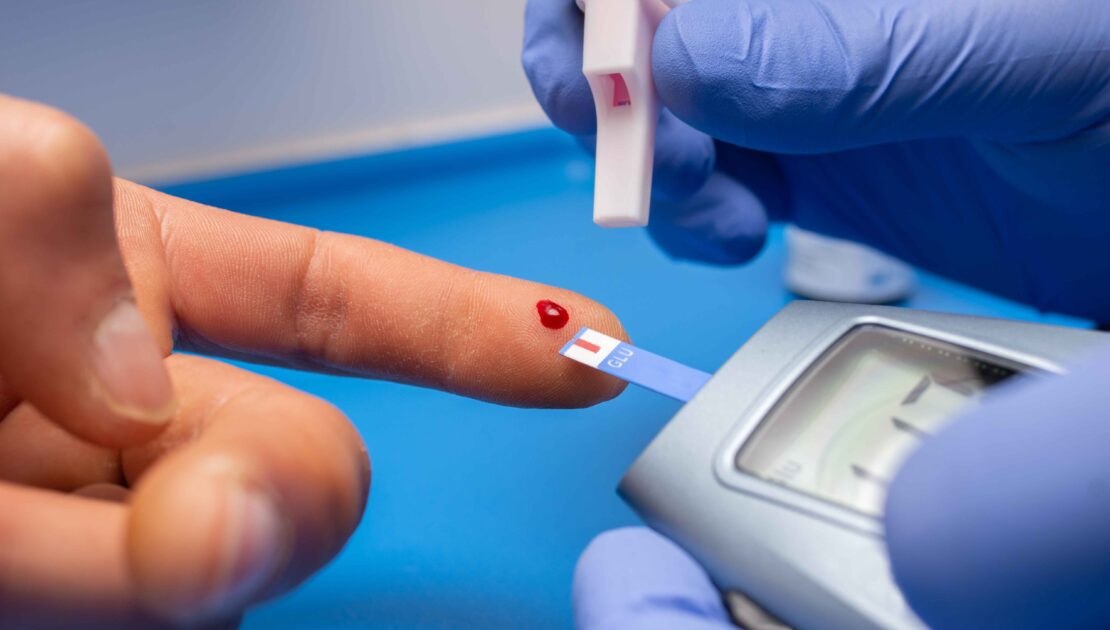
Know- How Diabetes Leads To Many Health Problems ?
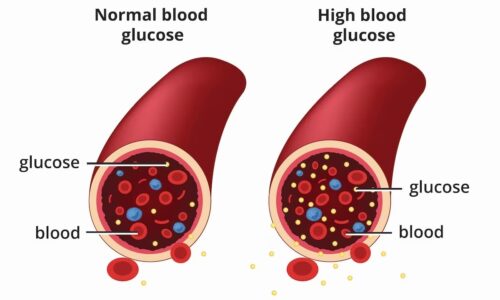
Diabetes treatment should start early because various complications can arise.
In this blog, we will explore the intricate pathways through which diabetes can lead to various health complications.
Diabetes Linked To Heart Problems OR Cardiovascular Complications –
Diabetes significantly increases the risk of cardiovascular diseases such as heart attack, stroke, and peripheral artery disease. High blood sugar levels can damage blood vessels and the heart, leading to Atherosclerosis (hardening and narrowing of arteries), Hypertension, and Dyslipidemia (abnormal levels of lipids in the blood). These factors collectively elevate the likelihood of cardiovascular events.
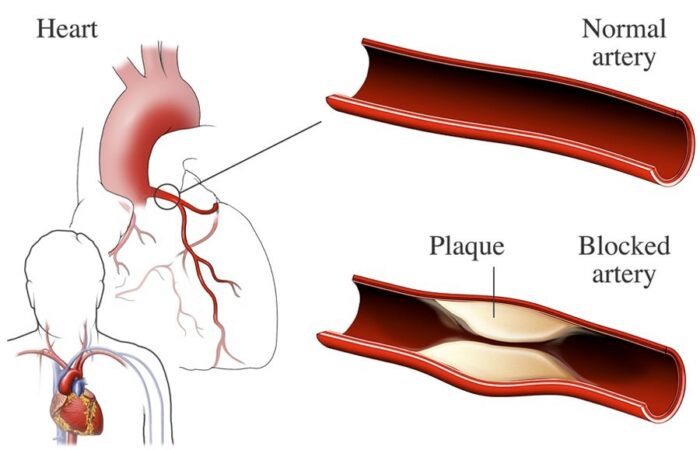
Diabetes Linked To Nerve Issues Or Neuropathy-
Diabetes can cause nerve damage, a condition known as neuropathy. Peripheral neuropathy affects the nerves of the extremities, leading to symptoms like tingling, numbness, and pain, particularly in the hands and feet. Autonomic neuropathy can affect internal organs, resulting in digestive issues, sexual dysfunction, and bladder problems. Neuropathy can significantly impair quality of life and may even lead to serious complications such as foot ulcers and amputation.
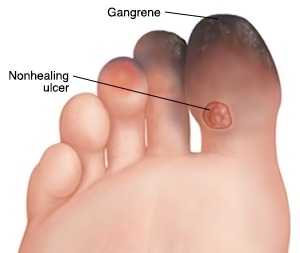
Diabetes Linked To Eyes Or Retinopathy-
High Blood Sugar levels can damage the small blood vessels in the retina, leading to diabetic retinopathy. This condition is a major cause of vision loss and blindness in adults. Initially, diabetic retinopathy may not cause noticeable symptoms, but as it progresses, it can lead to blurred vision, floaters, and eventually, complete loss of vision. Regular eye exams are essential for early detection and management of diabetic retinopathy.
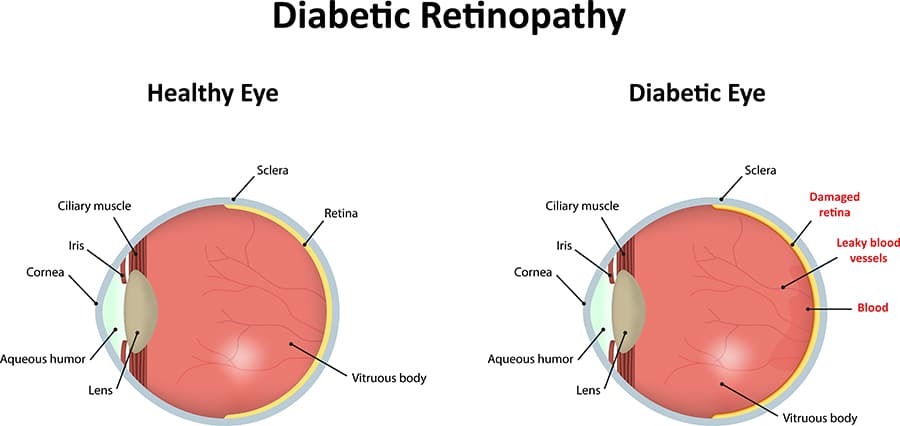
Diabetes Linked To Kidney Disease-
Diabetes is one of the leading causes of chronic kidney disease (diabetic nephropathy). High blood sugar levels and hypertension can damage the kidneys’ filtering units (nephrons) over time, impairing their function. As kidney function declines, waste products and fluid accumulate in the body, leading to symptoms like swelling, fatigue, and difficulty concentrating. In severe cases, kidney failure may necessitate dialysis or kidney transplantation.

Diabetes Linked To Skin Complications-
Individuals with diabetes are more prone to various skin problems, including bacterial and fungal infections, itching, and slow wound healing. High blood sugar levels create an environment conducive to microbial growth, increasing the risk of infections. Additionally, poor circulation and neuropathy can impair skin health and delay wound healing, predisposing to complications such as diabetic ulcers and cellulitis.

Diabetes Linked To Dental Issues-
Diabetes can affect oral health in several ways. High blood sugar levels promote bacterial growth in the mouth, increasing the risk of gum disease (gingivitis and periodontitis). Gum disease, in turn, can exacerbate diabetes by causing fluctuations in blood sugar levels. Furthermore, individuals with diabetes may experience dry mouth, oral thrush, and delayed healing after dental procedures, highlighting the importance of meticulous oral hygiene and regular dental check-ups.
Diabetes is a complex metabolic disorder with far-reaching implications for health. From cardiovascular issues to kidney disease, it can affect every organ system. Effective management involves controlling blood sugar levels, addressing risk factors, and monitoring for complications.
At Jinkushal Cardiac Care and Superspecialty Hospital, our experienced endocrinologist OR Diabetes Specialist Doctors can guide you in managing diabetes. We offer personalized treatment plans, regular monitoring, and education on healthy lifestyles to optimize your health outcomes. With our support, you can lead a fulfilling life despite the challenges of diabetes.

